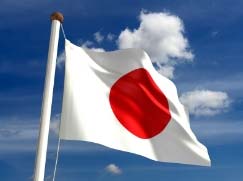Japan- A popular education destination

It is believed that Nepali students started visiting Japan after the then Rana rulers, for the first time, sent a group of eight Nepali students to the Asian country in 1902 for higher education. The establishment of diplomatic relations between Nepal and Japan in 1956 made things easy for Nepali students.
Despite the long history of young Nepalis flying to Japan for study, the number of students remained limited for years owing to a language barrier, as majority of the universities and colleges teach in Japanese. Since then, much has changed.
After USA, Britain and Australia made their student visa policies stricter, Nepali students choose Japan as their next destination. Academic programmes in Japan are liked by thousands of young Nepalis. Japan’s success in modernising the country and its advancement in science and technology in a short time are luring international students for higher studies.
According to Dipendra Ghimire, managing director at Neparu Japanese Language Institute, universities and colleges in Japan have a high reputation of an academic excellence globally. “World class education, like in the West, at affordable prices makes Japan a highly sought-after destination,” says Ghimire. Both the Japanese government and private sectors have heavily invested in research works. Engineering, Management and Science and Technology are the fields that Japan excels in.
In addition to formal education, Japan, being the Asian economic and industrial superpower, offers students ample opportunities to gain practical skills and knowledge. With an abundance of academic opportunities, it is up to students to make right decisions. “Students often face problems in making the right choice of the colleges and courses they want to study,” says chief at Fast Track Education Khadga Chamling.
According to him, lots of scholarship schemes are available for the deserving students. One who aspires to study in Japan should at least pass higher secondary level education scoring a minimum of 50 percent marks and receive six months of Japanese language training.
Apart from world class education, Japan offers a quality life comparable to other developed countries. It is a comfortable and safe place to live in with an extremely well-developed infrastructure. The “Land of the Rising Sun” also shares close cultural and economic ties with the rest of Asia. Japanese are well-known for hard work and dedication, as they made Japan a prosperous nation in just 50 years after the World War II.
Along with academic courses overseas students get an opportunity to know what civic duties are. “Such practical knowledge is valuable for the betterment of a country like ours,” says Sabina Pradhan, chief at Placement International. Unlike other nations, students need not invest before their passports are stamped and the visa success rate is very high, she says.
While most of the western countries issue 21-hour work permits to students, Japan allows them to work for 28 hours a week.
The Embassy of Japan in Nepal is offering Nepali students a number of scholarship programmes under three different categories— post graduate and research, undergraduate and specialised training. Scholarships are provided through an open competition. Karna Purush, managing director at Namaste Education, says if students get admission in any national college of Japan, they will have to pay only 50 percent of their tuition fees.
Anyone studying in full payment has to pay around one million rupees for the language course for one year, around 800,000 Japanese Yen a year for graduation in a college and around one million Yen in universities, Karna says.
Eknath Neupane, managing director at San International Education, has hot tips for students. “You need to be aware of the culture, language, lifestyle, legal system, colleges and universities, climate and so on before moving to Japan.” He urges the students who are willing to study in Japan not to depend on others or deceptive advertisements. “Internet provides everything at your fingertips.”
According to a conservative estimate, around 2,000 students have been going to Japan annually for higher studies for the last two three years.
source: The Kathmandu Post,13 Sept 2012
Posted on: 2012-09-13































